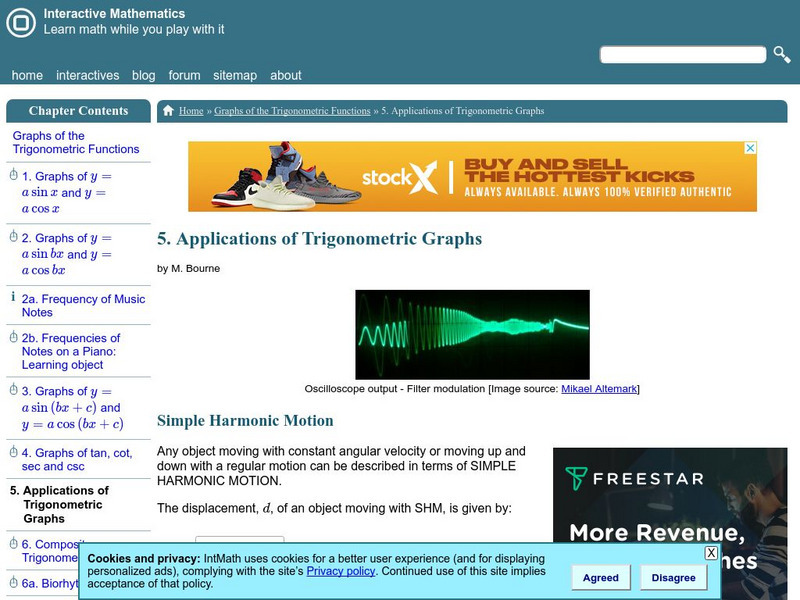Hi, what do you want to do?
Curated OER
The Unit Circle
Students relate the trigonometric functions to the coordinates of the unit circle. They classify trigonometric functions as odd or even. Students determine the signs of trigonometric functions in each quadrant. They are explained that...
Khan Academy
Khan Academy: Simple Harmonic Motion: Find Speed, Velocity, Displace From Graphs
Practice finding speed, velocity, and distance traveled for an oscillator from graphs of simple harmonic motion.
Khan Academy
Khan Academy: Analyzing Graphs of Spring Mass Systems
A practice site for students to compare motion graphs of two spring-mass systems.
Interactive Mathematics
Interactive Mathematics: Applications of Trigonometric Graphs
The tutorial explores applications of trigonometric graphs. Topics include simple harmonic motion and angular velocity. Definitions, an animation, examples, and practice exercises are included.
Khan Academy
Khan Academy: Analyzing Energy for a Simple Harmonic Oscillator From Graphs
Using velocity vs. time and position vs. time graphs, students will practice analyzing energy for a simple harmonic oscillator with these practice problems.
TeachEngineering
Teach Engineering: Android Pendulums
Students investigate the motion of a simple pendulum through direct observation and data collection using Android devices and the AccelDataCapture app.
Physics Aviary
Physics Aviary: Oscillation Lab (Graph Is Below Simulation Window)
This lab will allow students to investigate the relationships that govern the frequency of oscillation for a mass on a spring.
Physics Aviary
Physics Aviary: Practice Problems: Spring Constant From Oscillation
Students must calculate the spring constant of a spring based on the oscillation graph that is created by an oscillating mass.











